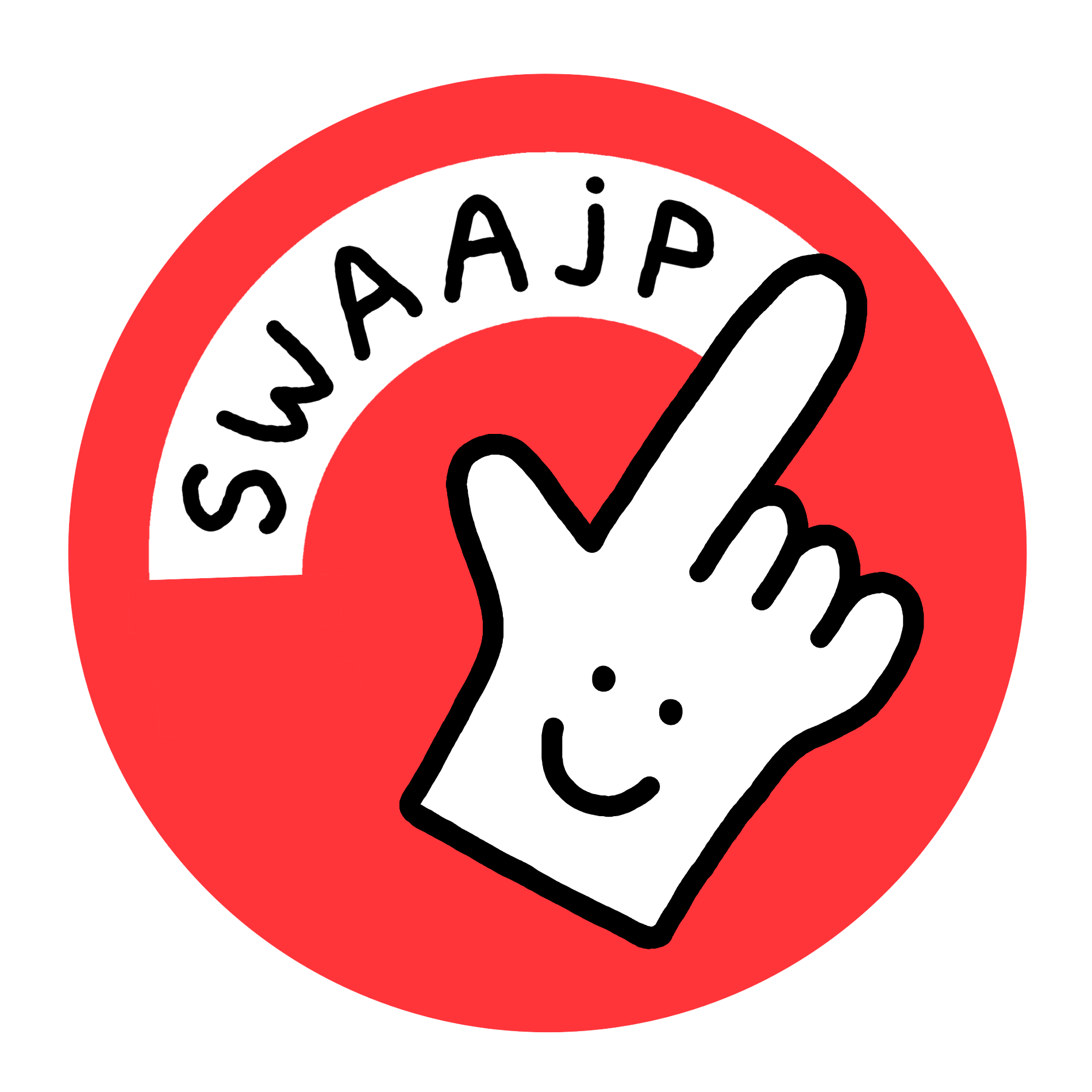The Swaajp School of Improv kicked off in February 2017 when eight keen enthusiasts signed up for our first beginner course. Over the course of following semesters, the school grew organically with follow-up classes added soon. In the Spring of 2019 we had 31 students enrolled in three different courses, which certainly makes us proud, but if honesty prevails: growing at this rate has been great, but not entirely without flaws and setbacks. However, our students inspire us to perform even better in the future.
Apart from pooling our own thoughts and experiences as coaches, we have also surveyed the students. After all, they do know best. After the last three semester courses, we did a non-mandatory post-course review survey. Students were asked to rate the course and give their opinion on a number of aspects. The school overall receives an average satisfaction rating of 4,3 out of 5 stars. That’s already impressive – kudos to us all -, but much is left to be gained. We sincerely thank our students for sharing their honest thoughts and critiques through the survey so we can tackle the issues at hand.
In this blog post, we’d like to present you the redesign of our curriculum and explain the reasoning behind it.
101 & 102
Most of our students who take courses at the Swaajp School of Improv have no prior experience. A comprehensive introduction to improvisational theatre is therefore key, so we have opted for a two-part course in two semesters, totalling 20 classes. Those parts are called Improvisation 101 and 102, similar to the American university course numbering system. Each of these courses has a main coach that teaches the bulk of the classes and a back-up teacher that sits in for a few of them.
Last semester we already started honing the curriculum of the introduction course, starting from the question: “what do we want our students to know and be able to do at the end of this course?” We have already revamped much of 101 course and from next semester on, the 102 course will share a similar fate.
Thematical courses and workshops
After the 101 & 102 introductory course, our students master the basics of improvisation and they are welcome to partake in our offer of thematical courses. Inspired by several other improvisation schools in the world, we believe that we can best help our students develop as improvisers by letting them grow at their own pace. For example, a student can retake a course on ‘characters building’ if she or he feels a need for more practice on this topic. Similarly, a coach can advise a student to take a course on ‘emotions’ if she or he thinks that is what the student needs to grow. Apart from deepening and widening our improvisation skills, these courses can also venture into certain topics or show formats. It’s also interesting for a student to be in a specific course, for instance on improv without words, with someone who is very good in physical theatre, while she or he is good at conveying emotions. One can learn a bunch from watching each other and playing together.
We will certainly continue to offer workshops by travelling international teachers complementing the workshops by our own teachers.
Showcases
We’ve been organising a showcase at the end of each semester course since the very beginning of the school and the importance of these opportunities cannot be understated. Students learn so much from trying out what they have learned in front of a live audience, from hearing how an audience responds to what they do. Of course these showcases will remain a crucial – and immensely fun – part of our school and we aim to end some of our thematical courses with these showcases too.

